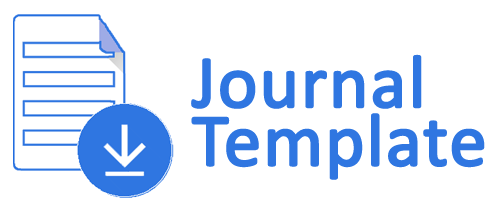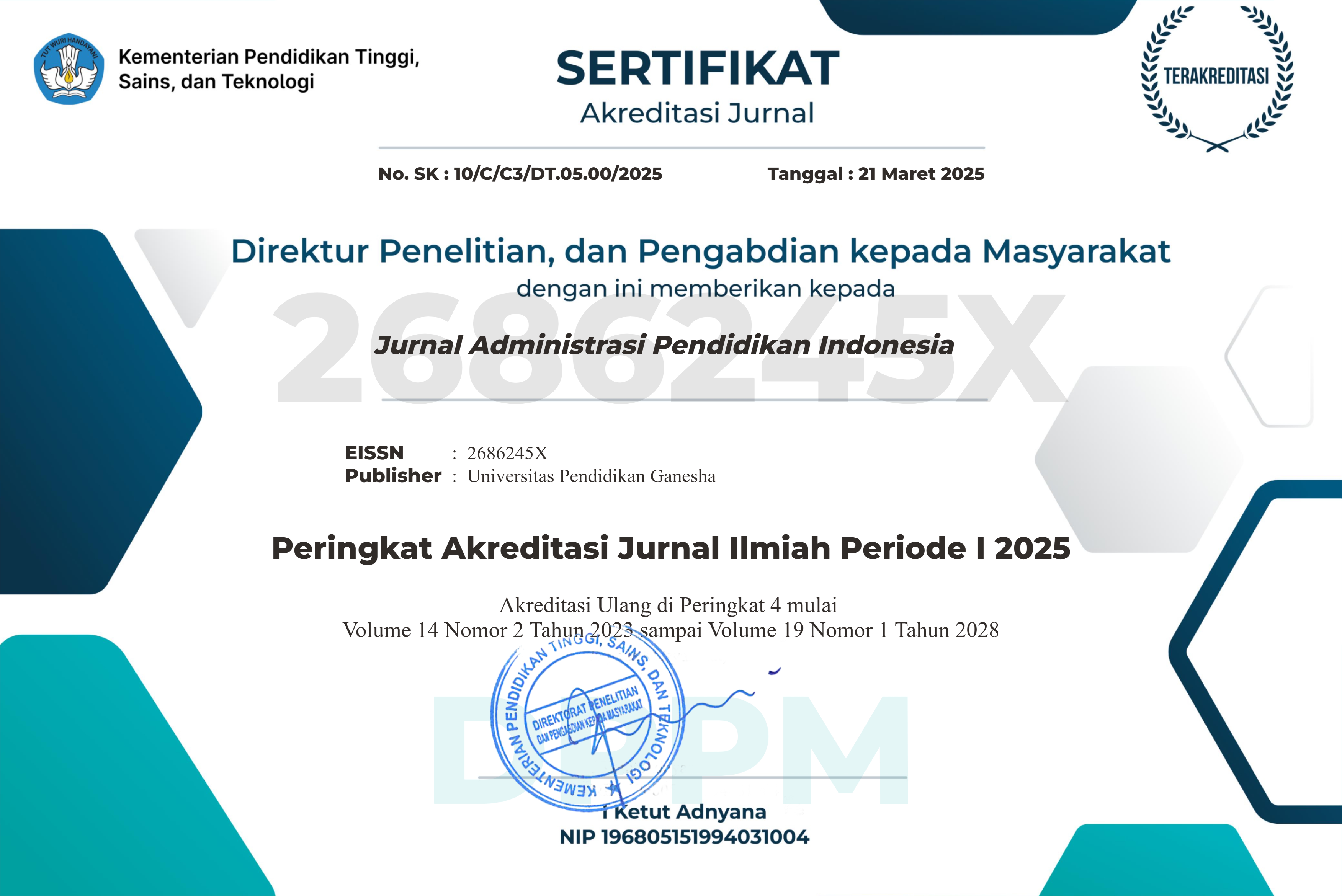Evaluation of Learning Management System (LMS) Implementation at Sekolah Penggerak SMPK 1 Harapan Denpasar
DOI:
https://doi.org/10.23887/jurnal_ap.v13i1.957Keywords:
: learning management system (LMS), evaluation study, CIPPAbstract
This study aims to determine the effectiveness of the components of context, input, process, product and the constraints that occur in the implementation of the Learning Management System (LMS) at the Driving School of SMPK 1 Harapan Denpasar. This research is a program evaluation research with the CIPP model. The population in this study amounted to 435 people, while the sample amounted to 70 people. Data context, input, process, product in this study were collected by using a questionnaire using a Likert scale model. The data analysis method used in this study is a quantitative descriptive analysis method. To determine the effectiveness of implementing the Learning Management System (LMS) the raw scores were transformed into Z-scores and then into T-Scores and then verified into the Glickman Quadrant prototype. Based on the results of the research data analysis that has been carried out, the results show that: 1) The effectiveness of the implementation of the Learning Management System (LMS) system in terms of the context shows effective results, 2) in terms of input, effective results are obtained, 3) in terms of the process, effective results are obtained, 4 ) and in terms of the product, the results obtained are effective, 5) The results of a joint evaluation of the implementation of the Learning Management System (LMS) in terms of context, input, process, product are very effective, and 6) The constraints faced in implementing the system Learning Management System (LMS) are 1) some students from elementary schools who have not implemented IT, 2) some education staff are still not ready to use applications that are constantly being updated, 3) some students are not ready because some have not used smartphones. or quota problems.
References
Agung, A. A. G. 2018. Metode Penelitian Kuantitatif (Perspektif Manajemen Pendidikan). Singaraja: DIPA Undiksha.
Agung, dkk. 2020. Evaluasi Program Pendidikan. Singaraja: DIPA Undiksha
Asrul, dkk. 2014. Evaluasi Pembelajaran. Bandung: Citapustaka Media.
Anonim. 2019. Kapita Selekta Magister Administrasi/Manajemen Pendidikan “Isu – Isu Pendidikan di Era 4.0”. Jakarta: UKI Press.
Elis, dkk. 2014. Evaluasi Pembelajaran. Bandung: Pustaka Setia.
Hidayat, Rahmat. dkk. 2019. Ilmu Pendidikan Konsep, Teori dan Aplikasinya. Medan: Lembaga Peduli Pengembangan Pendidikan Indonesia (LPPPI).
Janawi. 2019. Kompetensi Guru: Citra Guru Profesional. Bandung: Alfabeta.
Keputusan Menteri Pendidikan Dan Kebudayaan Nomor 1177/M/2020. Tentang Pedoman Penyelenggaraan Program Sekolah Penggerak.
Keputusan Direktur Jenderal Guru Dan Tenaga Pendidik Nomor 2368/B.Bi/Hk.01.03/2021. Tentang Petunjuk Teknis Penguatan Sumber Daya Manusia Melalui Pelatihan Dan Pendampingan Dan Pada Satuan Pendidikan Pelaksana Program Sekolah Penggerak.
Mahmud, Eka. 2020. Teknologi Pendidikan Konsep Dasar & Aplikasi. Samarinda: Mulawarman University Press.
Nurfuadi. 2019. Manajemen Kompetensi Guru Dalam Peningkatan Mutu Pembelajaran. Purwokerto: STAIN Press.
Peraturan Menteri Pendidikan Dan Kebudayaan Republik Indonesia Nomor 6 Tahun 2018. Tentang Penugasan Guru Sebagai Kepala Sekolah.
Peraturan Pemerintah Nomor 74 Tahun 2008. Tentang Guru.
Peraturan Pemerintah Nomor 19 Tahun 2017. Tentang Perubahan Atas Peraturan Pemerintah Nomor 74 Tahun 2008 Tentang Guru.
Peraturan Menteri Pendidikan Dan Kebudayaan Nomor 9 Tahun 2020. Tentang Perubahan Atas Peraturan Menteri Pendidikan Dan Kebudayaan Nomor 45 Tahun 2019 Tentang Organisasi Dan Tata Kerja Kementerian Pendidikan Dan Kebudayaan.
Prasojo, Latip Diat. 2013. Sistem Informasi Manajemen Pendidikan. Yogyakarta: UNY Press.
Roqib, Moh. 2009. Ilmu Pendidikan Islam. Yogyakarta: Pt. Lkis Printing cemerlang.
Sudarsono. 2016. Menuju Era Baru Dokumentasi. Jakarta: LIPI Press.
Sukadari, dkk. 2017. Ilmu Pendidikan. Yogyakarta: Cipta Bersama.
Undang-Undang Nomor 20 Tahun 2003. Tentang Sistem Pendidikan.
Undang-Undang Nomor 14 Tahun 2005. Tentang Guru Dan Dosen.











